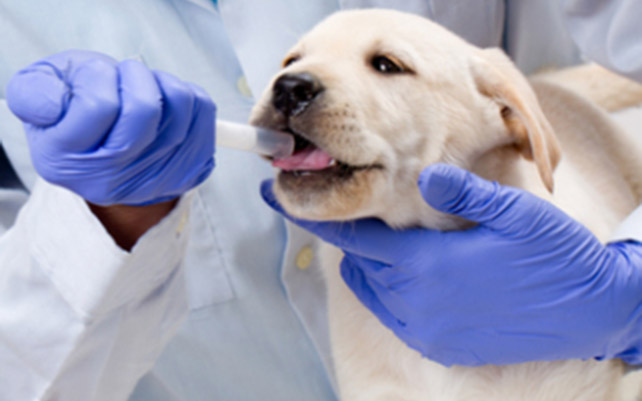
Photo: Shutterstock
Canine parvovirus, commonly called “parvo”, is a serious disease that affects dogs. It is caused by a very contagious virus. Puppies who have not been immunised yet and unvaccinated dogs are at risk of contracting it. The good news is that dogs can be vaccinated against this disease.
The virus is spread by either direct contact from one dog to another or by contact with people, contaminated environments or faeces. It can also be spread through contaminated surfaces such as food and water bowls, resting areas, collars, leashes and the clothing of those handling infected dogs. The hardy virus can survive in cold, hot, dry and humid conditions for extended periods of time and hence is highly contagious.
Symptoms
The parvovirus attacks the gastrointestinal tracts of dogs. Some symptoms include:
- Lethargy
- Appetite loss
- Fever
- Vomiting
- Bloody diarrhoea
Treatment
Dogs can suffer from dehydration due to the vomiting and diarrhoea symptoms they experience and the disease can be fatal. Deaths can occur within 48 to 72 hours after symptoms appear, so it’s vital you get your dog medical attention as soon as you feel something is amiss. There is no specific medication to kill the virus and dogs are usually treated for dehydration to try and restore lost electrolytes and fluids. In addition to this, an infected dog will be given treatment to combat vomiting and diarrhea and help prevent secondary infections due to having a compromised immune system. Dogs suffering from the disease need to be isolated to stop the infection spreading.
Prevention
Vaccination is the best way to avoid the parvovirus. Get your puppy immunized against the disease as early as possible. Ask your vet how often adult dogs need to be inoculated and follow their advice. Do not take unvaccinated puppies to unhygienic areas or places frequented by stray dogs or other unvaccinated animals in order to minimize the risk of your puppy catching the disease.
Please like FamiLife’s page on Facebook so that you get all our articles and others may find us.
